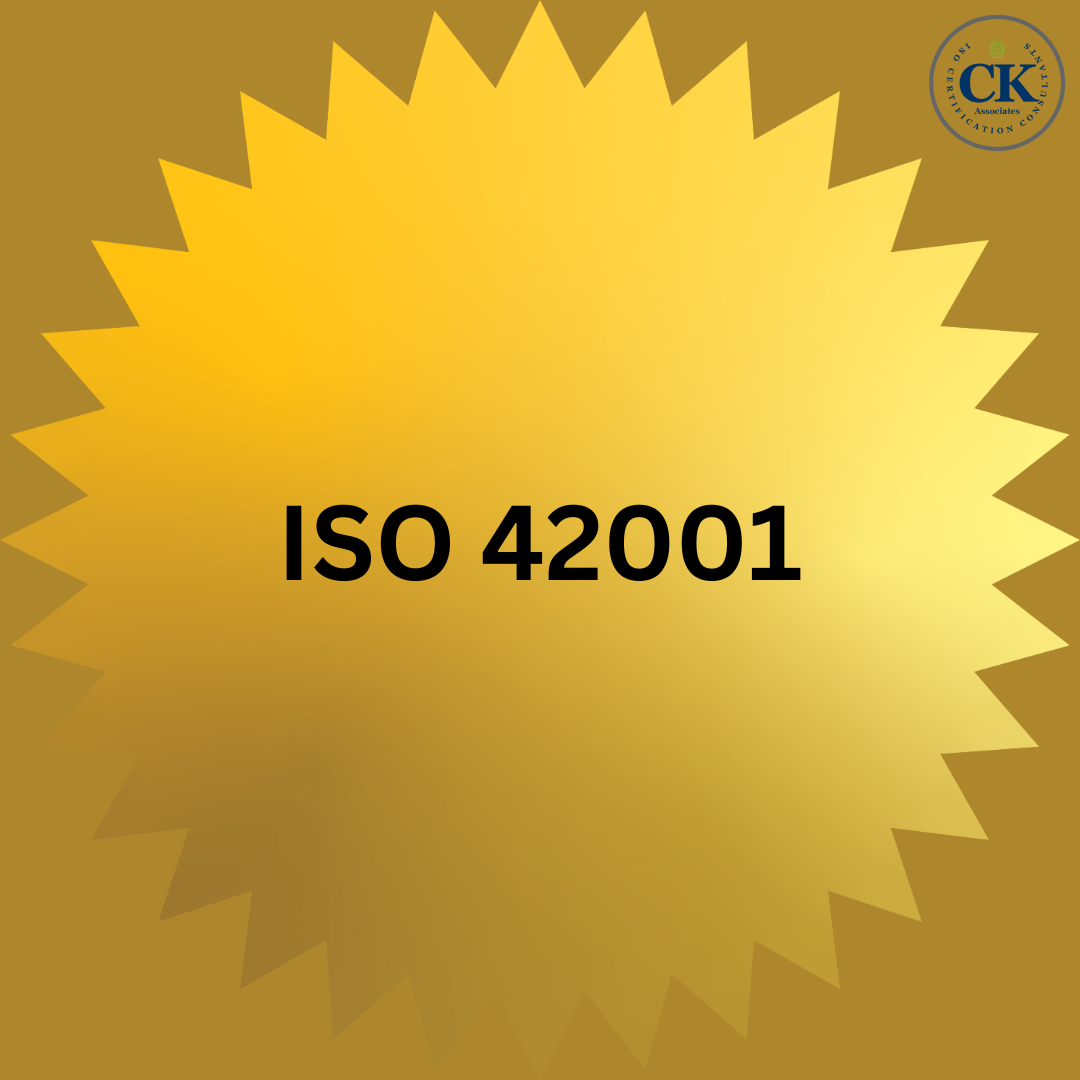Your Comprehensive Framework for Artificial Intelligence Management
As artificial intelligence (AI) continues to transform industries globally, maintaining trust, accountability, and compliance is vital. ISO/IEC 42001 is an international standard designed to help organizations effectively manage their AI systems. This standard outlines the requirements and best practices for implementing an AI Management System (AIMS). At CK Associates, we are experts in guiding organizations through the complexities of implementing ISO/IEC 42001 to harness AI responsibly and efficiently.
Understanding ISO 42001
- ISO/IEC 42001 offers a structured framework for organizations that develop, use, or provide AI-related products and services. It focuses on the management of risks and opportunities associated with AI, ensuring alignment with business objectives. This makes it a perfect complement to existing management systems like: ISO 9001: Quality Management Systems ISO/IEC 27001: Information Security Management Systems ISO/IEC 27701: Data Privacy Management Systems With the integration of ISO/IEC 42001, organizations can strengthen their commitment to AI governance while maintaining operational excellence.
Key Benefits of ISO 42001 Certification
- Compliance and Risk Management The standard helps organizations align their AI systems with national and international regulations, mitigating risks related to privacy, security, and ethical AI.
- Operational Efficiency ISO/IEC 42001 fosters seamless integration with existing management systems, reducing redundancies and improving workflows.
- Enhanced Stakeholder Confidence Show stakeholders that your AI processes meet the highest standards of safety, ethics, and accountability.
- Market Expansion Certification boosts credibility, paving the way for partnerships, funding opportunities, and market access in industries prioritizing responsible AI.
Choosing the Right ISO Consultant:
When selecting an ISO 42001 consultant, organizations should consider the following factors:
Experience and Expertise
Look for consultants with a proven track record of successfully implementing ISO Standards in organizations similar to yours. Check their credentials, certifications, and client testimonials to gauge their expertise.
Customization
Ensure the consultant offers customized solutions tailored to your organization’s size, industry, and specific requirements. Avoid one-size-fits-all approaches that may not address your unique needs.
Communication and Collaboration
Effective communication and collaboration are essential for a successful consulting engagement. Choose a consultant who listens to your concerns, communicates clearly, and collaborates closely with your team throughout the implementation process.
Cost and Value
While cost is a consideration, prioritize value over price. Choose a consultant who offers a balance of quality services and affordability, delivering tangible results and long-term benefits that justify the investment.
Long-term Support
ISO certification is just the beginning of your quality journey. Look for consultants who offer ongoing support and assistance beyond certification, helping you maintain compliance, drive continual improvement, and maximize the value of the Standard.
The Role of ISO Consultants
Implementing ISO Standard can be a complex and daunting task, especially for organizations with limited resources or expertise. This is where ISO consultants play a crucial role. Here’s how consultants can help organizations navigate the implementation process:
Expert Guidance
ISO Standards consultants bring extensive knowledge and experience in quality management systems. They help organizations interpret the requirements of the standard and develop customized solutions that align with their unique business needs and objectives.
Gap Analysis
Consultants conduct comprehensive gap analyses to assess the organization's current practices against ISO Standard requirements. This helps identify areas that need improvement and provides a roadmap for implementation.
Customized Implementation Plan
Based on the gap analysis, consultants develop a tailored implementation plan that outlines the steps, timelines, and resources required to achieve ISO certification. This ensures a structured and systematic approach to implementation.
Documentation Support
ISO Standards requires extensive documentation of processes, procedures, and policies. Consultants assist organizations in developing and documenting the necessary documentation, ensuring compliance with ISO standard requirements.
Training and Awareness
Consultants provide training and awareness programs to educate employees about the principles of ISO Standard, their roles and responsibilities, and the benefits of certification. This ensures buy-in and commitment from all levels of the organization.
Internal Audits
Consultants conduct internal audits to assess the effectiveness of the implemented quality management system and identify areas for improvement. This helps organizations maintain compliance and readiness for external certification audits.
Focus on What Matters Most
Attain the highest standards of quality, security, and operational efficiency with ISO Certification. Protect your reputation, secure your data, and optimize your business processes with a certification that distinguishes your organization.

